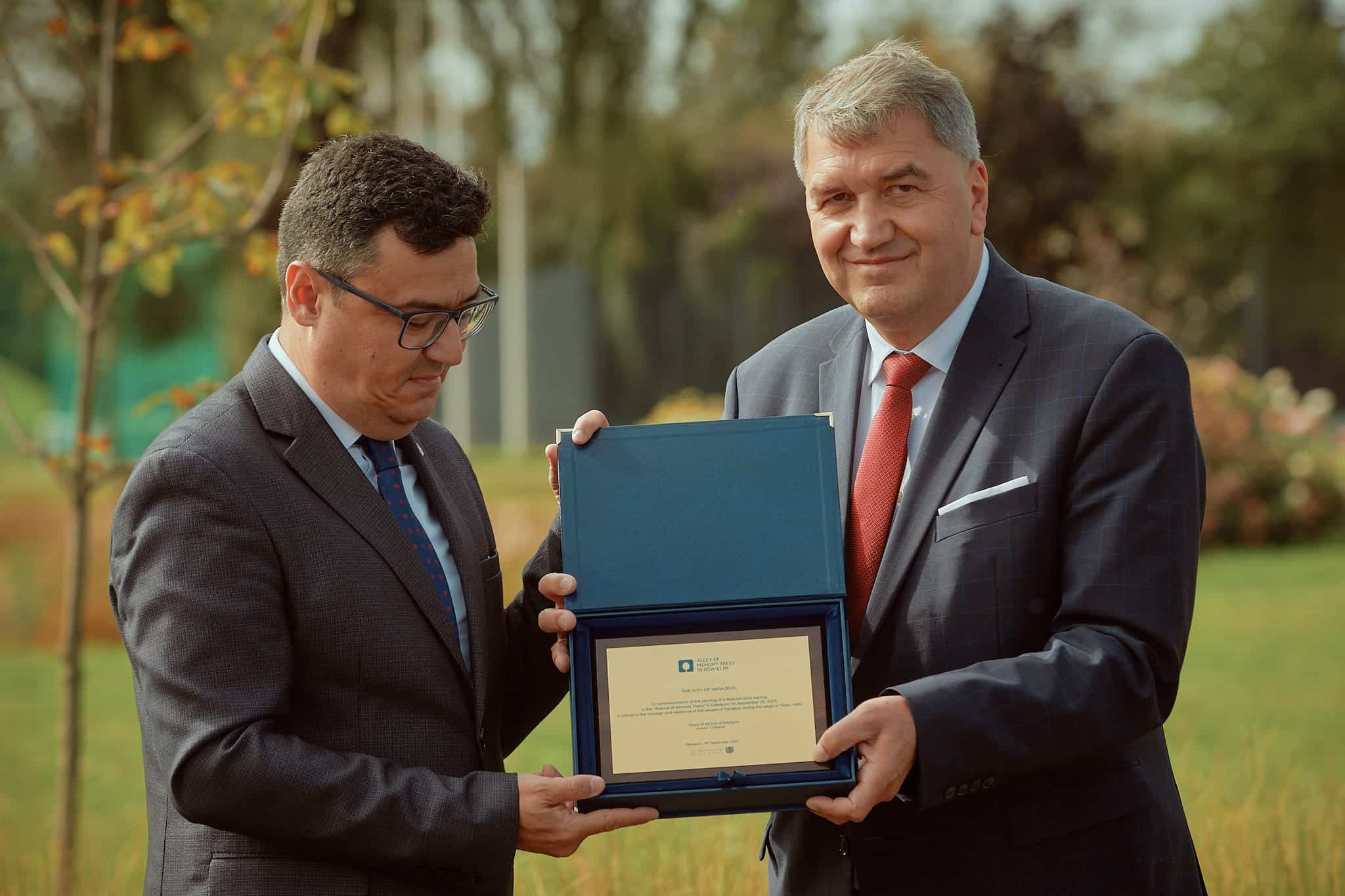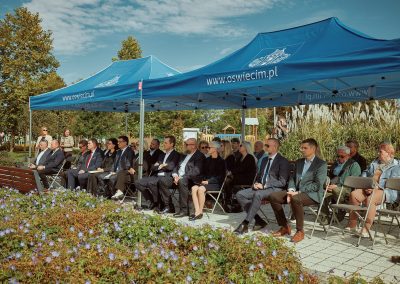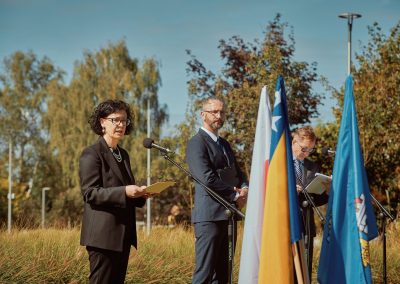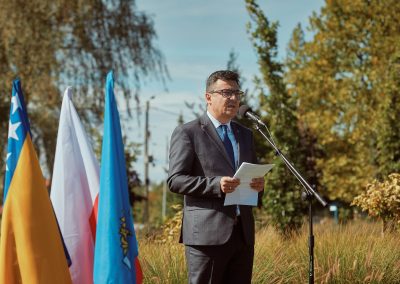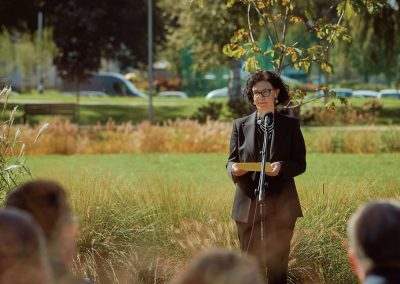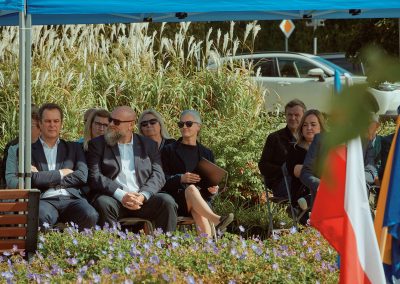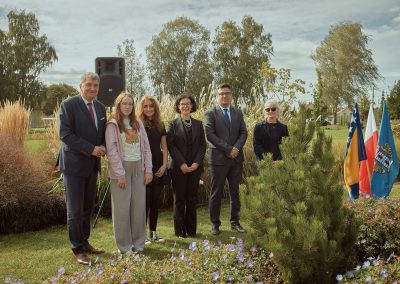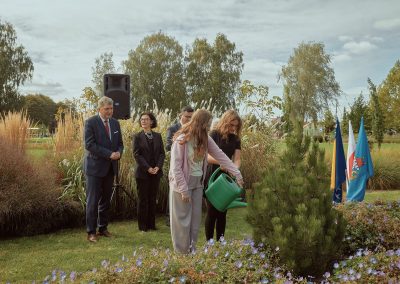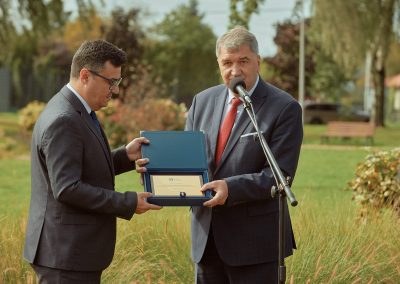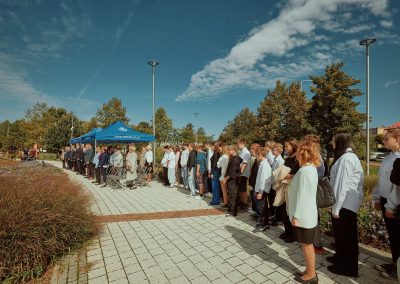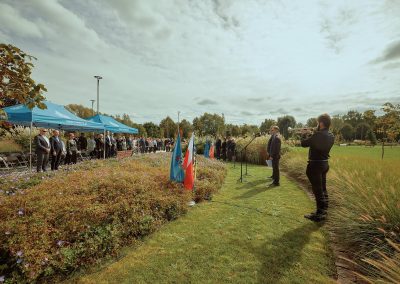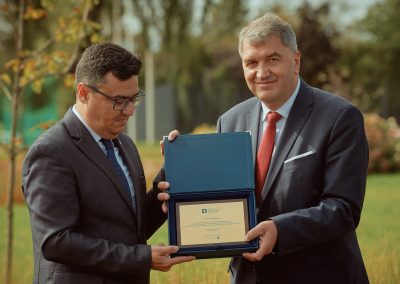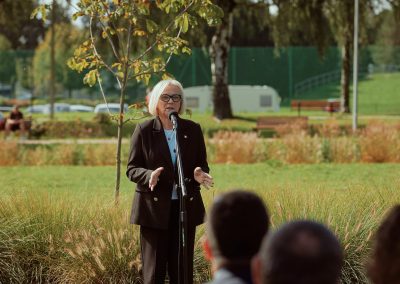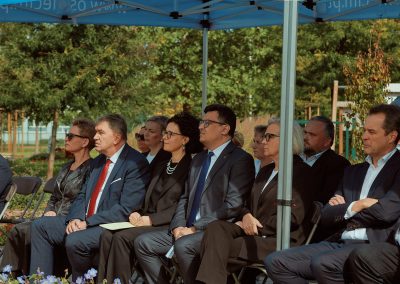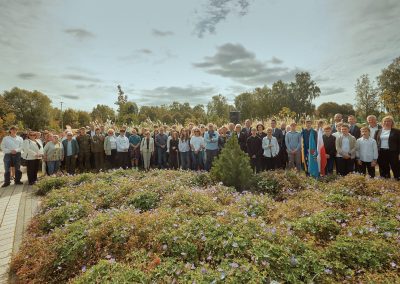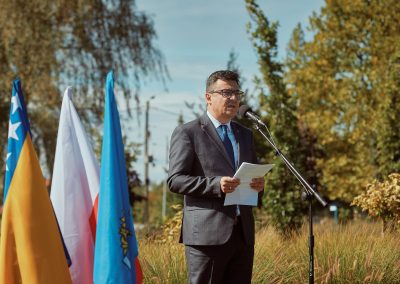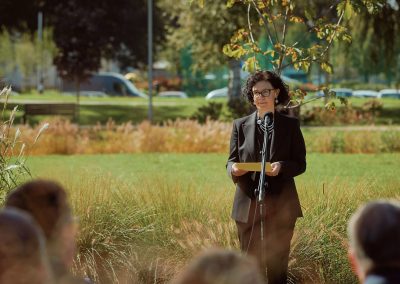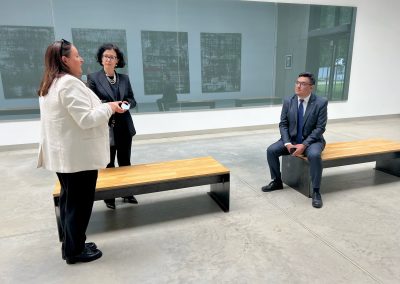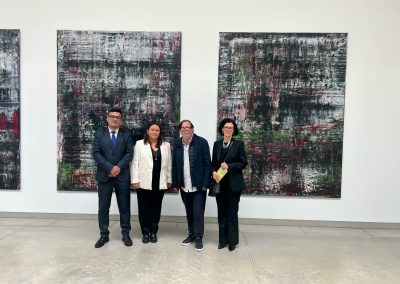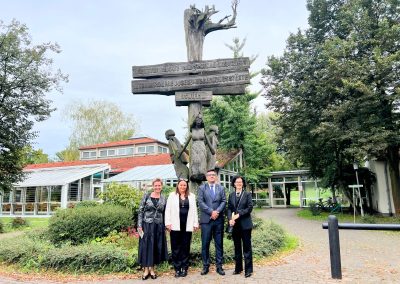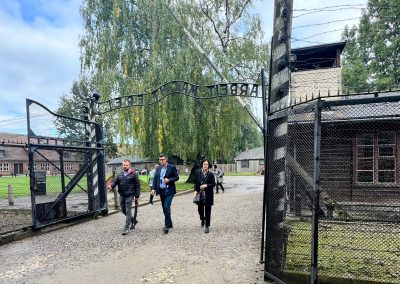Vijesti Informativnog centra o Međunarodnom krivičnom sudu za bivšu Jugoslaviju (MKSJ) Sarajevo
Deputy Mayor Puharić planted a Bosnian pine in the Avenue of Memory Trees
For more infortmation:
https://oswiecim.pl/oswiecim-w-parku-na-zasolu-rosnie-drzewo-poswiecone-sarajewu-kolejny-symbol-sily-nadziei-i-przetrwania/76969/
In the Avenue of Memory Trees, a tree characteristic of Bosnia and Herzegovina has been planted. It is a Bosnian pine, a gift from Sarajevo, which now grows in the avenue alongside trees already given to Oświęcim by Guernica, Dachau, Ukraine, and Hiroshima. The tree commemorates the victims of the siege of Bosnia and Herzegovina’s capital, which lasted nearly four years—from 1992 to 1995—and was the longest in Europe since World War II.
At the event, alongside Oświęcim’s mayor Janusz Chwierut, were Predrag Puharić, deputy mayor of Sarajevo; Gabriela Ghindea from the Auschwitz Institute for the Prevention of Genocide and Mass Atrocities; as well as local government representatives from the county and the municipality of Oświęcim. Also, present were Deputy Speaker of the Sejm Dorota Niedziela, MP Marek Sowa, Anna Skrzypińska—deputy director of the Auschwitz-Birkenau Museum—city councilors, school principals, cultural institution representatives, the International international Youth Meeting Centre, the vice-rector of the Małopolska State University, members of the Zasole District Council, and students from Primary School No. 5 and Primary School No. 7.
“It seemed that after the experiences of World War II and Auschwitz, tragedies like those in Sarajevo or Srebrenica would never happen again in Europe. Life has shown otherwise. Before our eyes, what happened in Bosnia and Herzegovina is happening today in Ukraine. Many think that war is something foreign, distant—something that will never occur. Ukraine, or the events of recent days in Poland, show that it is possible,” said Oświęcim mayor Janusz Chwierut.
The tree was planted jointly by Oświęcim mayor Janusz Chwierut; Predrag Puharić, deputy mayor of Sarajevo; Gabriela Ghindea, Director of Mediterranean Basin Programs at the Auschwitz Institute for the Prevention of Genocide and Mass Atrocities; and Anna Skrzypińska, deputy director of the Auschwitz-Birkenau State Museum.
Deputy Mayor Puharić emphasized in his address the importance of nurturing the culture of remembrance and marking peace events, such as the planting of a peace tree.
“Today, Sarajevo joins this noble community. The Bosnian pine we are planting carries the memory of our city under siege from 1992 to 1995 – the longest siege in modern European history. For almost four years, Sarajevo lived under shelling, sniper fire, cold, and hunger. Thousands of lives were lost.
Yet, Sarajevo refused to abandon its identity as a city of coexistence, a meeting place of cultures and religions, an Olympic city known for its openness and hospitality. Faced with hatred, our citizens chose solidarity. Faced with destruction, they preserved unity. Faced with despair, they affirmed that peace has no alternative,” said Deputy Mayor Puharić in his speech.
,,Peace projects are always uplifting. But today, as we navigate volatile times — when fundamental values and even the concept of peace are being distorted — this event shines as a precious ray of hope. It reminds us that peace is not an abstract idea, but a living practice, cultivated through remembrance, dialogue, education, and community.
The Auschwitz Institute was founded to honor the memory of all victims of the Holocaust and to carry the lessons of that cataclysm into the present — to prevent others from being targeted for violence because of their identity. We pursue this mandate worldwide through education, training, and creative initiatives like today’s, which so beautifully showcase what I call landscapes of resilience’’, stated Dr. Gabriela Ghindea in her speech.
The city of Oświęcim created the Avenue of Memory Trees in Zasole Park, near the former German Nazi concentration and extermination camp Auschwitz, in 2017. This peace project involves planting trees from various places in the world where residents have suffered because of war. Each tree symbolizes friendship, solidarity, and a shared commitment to building a world free of violence and hatred. The trees stand as living monuments that carry both a warning and a hope for the future.
This peace project aims to promote intercultural relations, to combat all forms of racism, antisemitism, and intolerance, and to use Holocaust education as a tool for preventing genocide and mass violence. Across all civilizations erased by war, where innocent civilians perished in their final cries, the suffering remains the same.
That is why we must stand together, so that the voices of peace cities such as Sarajevo and Oświęcim resonate ever further and stronger. With some hope, the next generation will heed our warning. The culture of remembrance can help societies confront and overcome the heavy traumas that, in different forms and intensities, their citizens continue to bear.

